BCC was no stranger to philanthropic work under the inspiration and guidance of its President, Mr Agha Hasan Abedi.
In 1980, US President Jimmy Carter before leaving office commissioned The Global 2000 Report to the President. It warned that world population growth would have dramatic consequences by the year 2000 if no changes in public policy were made.
Mr Carter had enormous respect and admiration throughout the world, but particularly in the Third World where he focused much of human rights policy while he was President. He was the first global leader to recognise that unless nations collectively and individually took bold and imaginative steps toward improved social and economic conditions, reduced fertility, better management of resources, and protection of the environment, the world must expect a troubled entry into the twenty-first century.
After leaving the White House and the office of the US Presidency, Mr Carter devoted himself to several charities, including providing assistance to several organisations for fighting disease in the Third World. In this capacity the former US President developed a friendship and working relationship with Mr Agha Hasan Abedi, the founder and President of BCCI. They also met on other occasions, and established a very warm, personal relationship. In 1983, for instance, when Carter and former President Ford held a joint symposium on conflict resolution at the Emory University, to which Mr. Abedi was also invited.
Global 2000
Global 2000 was one of the results of former US President Mr Jimmy Carter's sense of obligation, once he had left the White House in 1980, to use the knowledge, influence and experience he had gained in office to continue the search for solutions to problems on his agenda. These included the issues of education, hunger, health, the environment, human rights, conflict resolution and arms control.
In 1982, Mr Carter and his wife Mrs Rosalynn Carter founded the Carter Center in Atlanta, Georgia USA as a non-governmental, not-for-profit organisation, partnered with Emory University, a private research university in Atlanta. The Carter Center's goal is to advance human rights and alleviate human suffering, including helping improve the quality of life for people.
Inspired by the 1980 Global 2000 Report commissioned by then US President Jimmy Carter, Global 2000 was a non-profit-making organisation formed in 1980 as part of the Carter Center to tackle Third World problems such as hunger, health, education and environmental matters. It was dedicated to promoting self-sufficiency in the Third World, raising health standards and tackling wider environmental issues worldwide. International action and co-operation were urgently needed to increase the world's food production, improve water supplies, and utilise trade, investment and assistance to narrow the gap between rich and poor nations. Global 2000 was a focus for these efforts, attracting world attention to projects which equip developing countries with the means to help themselves.
Mr Abedi was possibly the only corporate executive who visualised the challenges posed by the changing profile of the world in the 21st century. In 1979 Mr Agha Hasan Abedi, BCCI President had launched the Third World Foundation (TWF) in London in 1979, a charity that was dedicated to working for the intellectual, economic and social advancement of the people of the Third World through recognition of contributions of their people and institutions, publications, research and open international debate. Mr Abedi was chairman of the Board of Trustees.
Global 2000 chairman was former US President Mr Jimmy Carter and one of the two co-chairman was BCC President Mr Agha Hasan Abedi who were strongly supported by Mr Ryoichi Sasakawa of Japan, the other co-chairman, whose commitment to philanthropy is based on his deep yearning for world peace. He believed that such a peace must be based on universal well-being, and over 20 years he donated around US $12 billion to industrial, social and public works projects in Japan and around the world.
Mr Sasakawa was the biggest individual donor to the United Nations and the World Health Organisation, and his various honours include the United Nations Peace Medal, the Linus Pauling Award for Humanitarianism, the Helen Keller International Award and the Martin Luther King Jr Humanitarian Award.
With three such dedicated humanists at its helm, and BCC and the Japanese philanthropist Mr Sasakawa as the two major sponsors, Global 2000 made considerable headway in assisting governments in Africa, Asia and the People’s Republic of China.
The underlying philosophy was to avoid capital intensive projects and get better value for money through technology transfer, which in any case has a much greater long term effect. Global 2000 provided the technical expertise. the Third World the manpower and BCC and Mr Sasakawa the finance.
Global 2000 had a permanent staff of around 40 worldwide, with a much larger number of officials seconded in various countries. mainly to carry out surveys or training work. For example, a health survey in Nigeria needed 6,000 health workers.
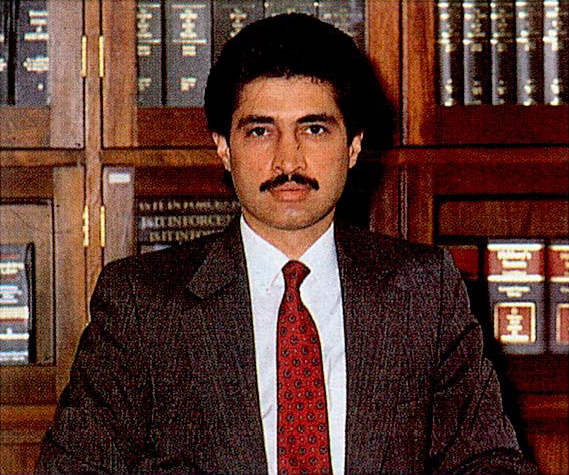
BCC separately dedicated the bank's officers to work with Global 2000 and monitor joint programmes. Mr Mahmood Hasan of BCC was responsible for the overall relationship with Global 2000. In Beijing office Mr Zafar Mahmood was BCC's link with Global 2000 - BCC programmes in China.
In order to create awareness about the challenges facing the world BCCI created a think tank called "Vision-2000" chaired by Mr Jimmy Carter.
BCC and Global 2000
BCC donated a total of $5 million to Global 2000 in 1989, for individual projects costing around $350,000 each a year. Each project lasted on average between three and five years, therefore, BCC's commitment was not a short term affair. In total BCC is reported to have contributed US$8 million to the Global 2,000 project, helping to fund programmes in Africa, Asia and China. The bank used local currencies for funding. This made good business sense as the money was invested in the countries where it is generated.
On January 16, 1990, Mr Jimmy Carter issued the following statement, "The Carter Center, through its Global 2000 program, conducts a number of health and food programs in Third World countries, primarily in Africa and Asia. Some of our funding for projects in Ghana, China, Zambia, Nigeria, Bangladesh and Pakistan is from the philanthropic branch of the Bank of Credit and Commerce International (BCCI). Thanks to the generosity of BCCI and other contributors, hundreds of thousands of people benefit from these programs."
In addition to funds, BCC provided support through its managers and officers in the countries where Global 2000 had its projects. In this way, the Group was able to provide Global 2000 with an invaluable source of useful contacts and detailed knowledge of prevailing local conditions.
BCC seconded an officer, Mr Mahmood Hasan, to Global 2000 to act as the link between the two organisations. According to Mr Hasan, in all local projects BCC's local management played a vital role, being extremely helpful and supportive of the whole venture; this was especially true of China, where the local BCC staff were an invaluable part of the whole project.
Global 2000’s approach
Global 2000 used a unique formula whereby three resources - funds, political will/technical expertise, and manpower were used to ensure that projects were implemented quickly and give rapid results. Political will and technical expertise were provided by Global 2000, funds by BCC, and manpower by the Ministry of Health or the Ministry of Agriculture, as appropriate, of the country concerned.
This formula also meant that at the end of a project, when Global 2000 withdrew its presence as an aid agency, the technical expertise gained by government ministry officials would remain in the country, to be tapped for a long time to come.
Bringing Hope to the Third World
BCC’s financial contribution and close involvement Global 2000 was an expression of BCC’s desire to do whatever the BCC President could, to alleviate human suffering, however modest BCC’s efforts in the light of the problems faced by so many in the Third World.
Some of Global 2000 programmes backed by BCC were health projects including eradication of guinea worm disease in several Third World countries, special education in China and agricultural yield improvement in Zambia. In conjunction with the Sasakawa Africa Initiative, Global 2000 was also engaged in developing food self-sufficiency in three African countries: Sudan, Tanzania.
Eradication of Guinea worm disease
Of all Global 2000's activities, the project that was likely to bring relief to the greatest number of people was undoubtedly eradication of the guinea worm parasite by 1995.
In the 1980s, every year more than ten million people in developing countries were maimed, or in extreme cases killed, by the painful and debilitating guinea worm parasite. Every year neo-natal tetanus causes 800,000 deaths worldwide.
Guinea worm was endemic in the 19 sub-Saharan countries where there was no access to safe drinking water or health care, although Gambia and Guinea succeeded in eradicating it. The cost of achieving this worldwide was estimated in the 1980s to be about $80 million.
In some parts of Nigeria up to half the population were incapacitated by the disease at any one time. dramatically reducing agricultural production.
Guinea-worm disease is caused by the parasitic worm Dracunculus medinensis or "Guinea-worm". This worm is the largest of the tissue parasite affecting humans. The parasite migrates through the victim's subcutaneous tissues causing severe pain especially when it occurs in the joints. The worm eventually emerges (from the feet in most of the cases), causing an intensely painful oedema, a blister and an ulcer accompanied by fever, nausea and vomiting.
Although rarely fatal, guinea worms nevertheless cripple adults and children for periods of between 30 and 100 days a year, causing considerable pain and permanent disability. The Guinea worm's life cycle begins when humans drink water contaminated by its larvae. Once in the gut, the larvae burrow through the wall and migrate to the lymphatic system. where they develop into adults inside the victim's body. After about a year, fully grown worms of up to one metre in length emerge through a painful blister on skin to discharge larvae in any water available and continue the cycle.
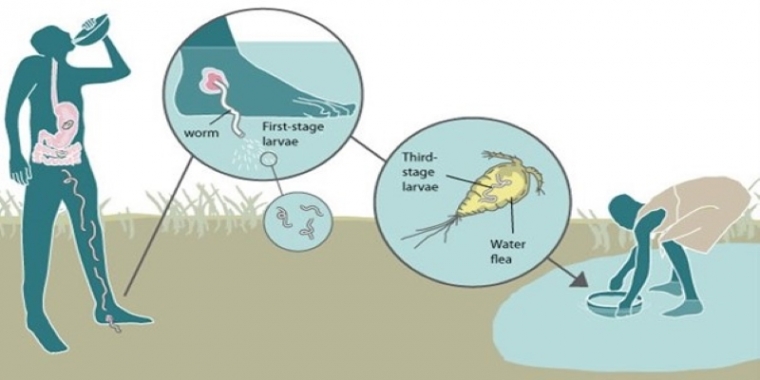
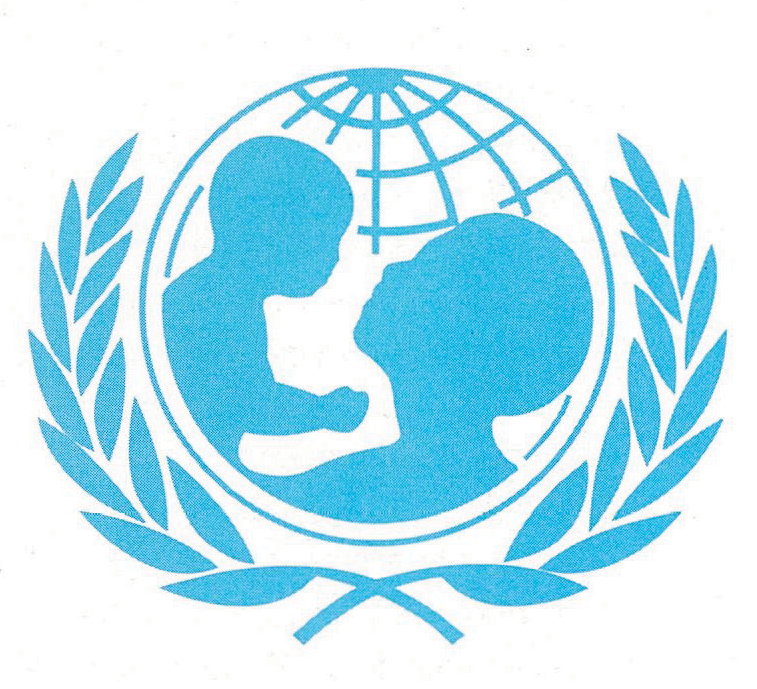
UNICEF (now the United Nations Children's Fund) allocated $1.5 million to the cause during 1989 and 1990, and the World Health Organisation had chosen guinea worm as the next target disease to be wiped out internationally, priority being given to the three countries in which it occurs nationwide: Nigeria. Ghana, and Burkina Faso.
In about March 1989, as a result of much hard work by Dr Donald Hopkins of Global 2000 and Carter Center’s health programmes, the World Health Assembly in Geneva, Switzerland passed a resolution recognising the need to eradicate guinea worm disease from the face of the earth. The last such resolution to be passed related to smallpox, which has been almost been eliminated. Dr Hopkins served as consultant on several committees of the World Health Organization.
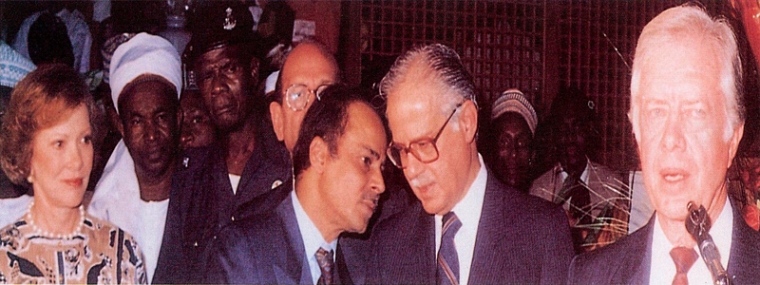
A new initiative, "Target 1995: Global Eradication of Guinea Worm", was launched in Lagos, Nigeria at the donors conference in July 1989 sponsored by BCC, Global 2000. UNICEF' and UNDP (United Nations Development Programme). International agencies from countries such as the US, Japan. the UK, Sweden and Holland attended, plus multinationals based in Nigeria, demonstrating Global 2000's effectiveness in drawing world attention to the problem and its solution.
US$9.6 million was pledged at the Lagos donors’ conference. Donors included Global 2000, the Bank of Credit and Commerce International, the government of Nigeria, UNDP, and UNICEF. The Government of Nigeria donated US$1 million towards the campaign for the eradication of guinea worm disease in Nigeria.
Global 2000 succeeded in organising an effective international campaign for the eradication of guinea worm disease and BCC’s contribution was acknowledged thus: "Global 2000, Inc., gratefully acknowledges the catalytic role of the Bank of Credit and Commerce International in funding guinea worm eradication activities in Ghana, Nigeria and Pakistan, and its funding of the International Donors Conference held in Lagos, Nigeria, in July 1989."
Education essential
There is no known curative medicine or vaccine to prevent Guinea worm disease, the same treatment for emerging worms has been used for thousands of years.
Guinea worm disease can be transmitted only by drinking contaminated water. The prevention of guinea worm disease is simple: a clean drinking water supply. In practice, health education is also essential because some people prefer the taste of stagnant water, and others still believe that the infection is caused by curses and evil spirits rather than by contaminated water.
Global 2000 achieved considerable success in Pakistan, where the number of cases dropped from 2,400 to 1,111 in two years. In India. only 12,023 cases remained in 4,278 villages in 1988, compared with almost 40,000 cases in 13,000 villages in 1984.
By the end of 1990, the guinea worm was expected to be close to extinct in Asia, after which attention was concentrated on the endemic zone in Africa.
Over 6,000 people were trained to conduct a case search which discovered about 650,000 cases of guinea worm in Nigeria alone: more than in any other country in the world. The results were announced at Nigeria's Second National Conference on Guinea Worm held in Lagos in around March 1989. One immensely encouraging result of the conference was an announcement that the Nigerian Government would give priority to villages with guinea worm for rural water supply projects.
Health projects
Pakistan
Former US President Mr Jimmy Carter, Chairman of Global 2000 and Mr Agha Hasan Abedi, President of BCC and co-Chairman of Global 2000, made a three-day visit to Pakistan in 1987 as part of a world tour that also took them to India, Bangladesh and many parts of Africa.
The purpose of the visit, Mr Carter's first to Pakistan, was to brief local officials on the activities and scope of Global 2000.
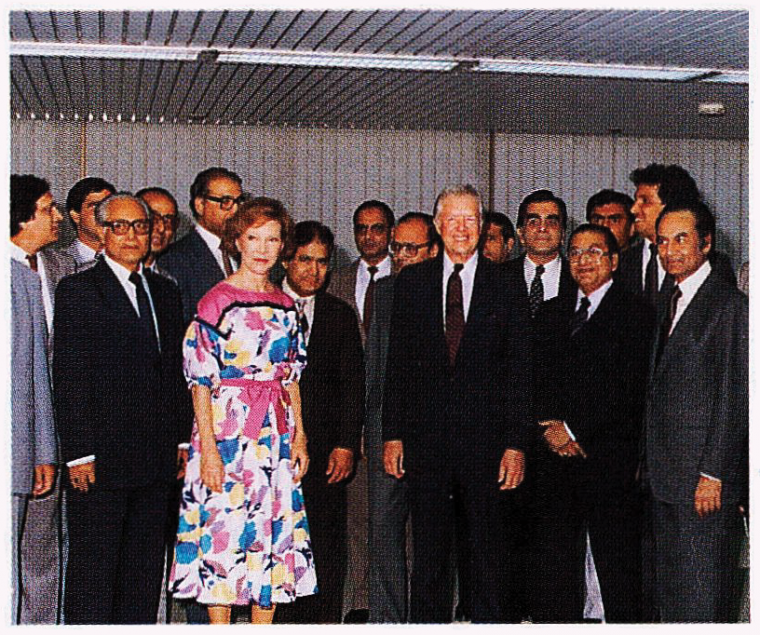
The Pakistan visit of Mr Carter and Mr Abedi, which was given considerable coverage in the press, began with a warm welcome at Islamabad airport (the country’s capital) from President Zia-ul-Haq, along with Federal Minister for Communications Mr Noor Hayat Noon, Foreign Secretary Mr Abdul Sattar and other federal and local officials. US Ambassador to Pakistan Mr Dean R. Hinton was also there to greet the party, which included Mr Carter's wife Mrs Rosalynn Carter.
Global 2000 was already assisting governments in Africa and Asia, an agreement was reached to launch a programme in Pakistan jointly by the Pakistan Government, Global 2000, and the BCCI Foundation Pakistan. Mr Carter's itinerary included calling on Pakistan’s President to initial the memorandum of understanding signed by the three parties to help finance health related projects over a period of five years. The agreement to finance health related projects were to be followed by another covering project aid for the food and agricultural sector.
Global 2000 implemented a second project in Pakistan in conjunction with the Ministry of Health in January 1989. Its aim was the prevention of infant death due to tetanus in the first 28 days of life. The project would use the infrastructure of the Ministry of Health, and was designed to reduce dramatically, over the next three to four years, the infant mortality rate due to tetanus.
After initial surveys, the programme involved training Traditional Birth Attendants to inject mothers with tetanus toxoid, which prevents the disease. These attendants were also shown how to carry out proper safe delivery practices and neonatal care to ensure that the child is free from tetanus infection.
Bangladesh
In Geneva from 30 June to 2 July 1986 the Carter Center founded by former US President Mr Jimmy Carter conducted a workshop on 'Alleviation of Poverty and Starvation and Improvement of Health-Prerequisites for Peace'. Mr M.A. Rashid, General Manager BCCI Bangladesh was invited to participate, and during this session Mr Carter announced plans to launch two integrated health care projects in Bangladesh.
During the 1987 world tour undertaken by Mr Jimmy Carter who was Chairman of Global 2000 and Mr Agha Hasan Abedi, President of BCC and co-Chairman of Global 2000, they also visited Bangladesh.

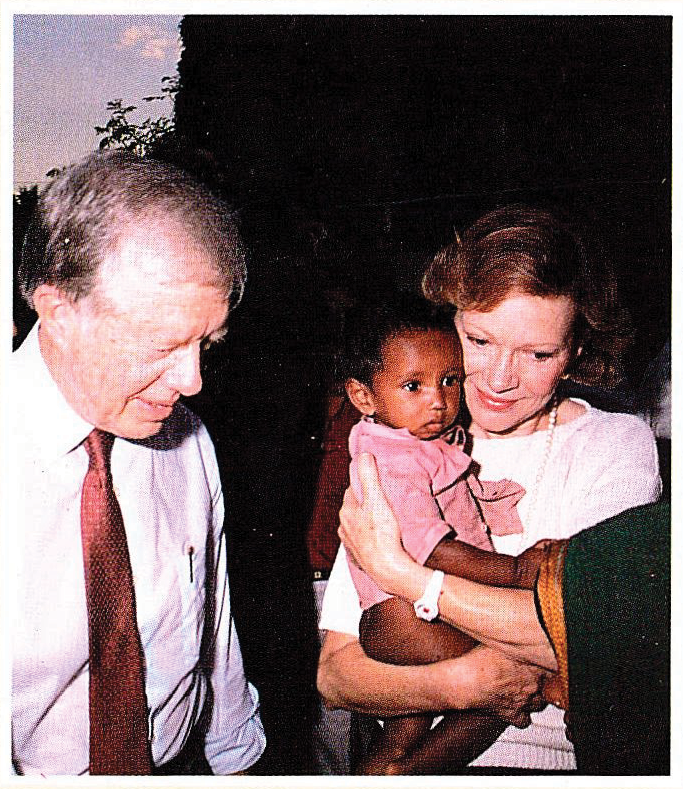
Mr Carter and Mr Abedi had meetings with the President of Bangladesh, Mr H. M. Ershad, and senior government officials to initial a Memorandum of Understanding between the Bangladesh Government, Global 2000 and the BCCI Foundation Bangladesh for launching a joint project on health and agriculture.
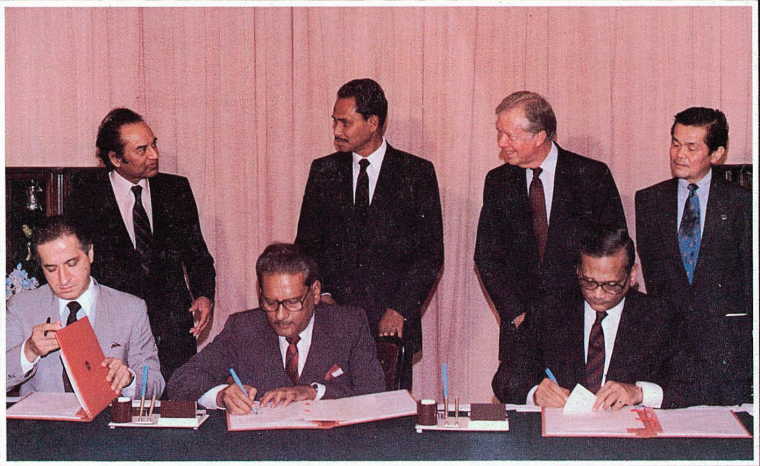
The health projects were to be a joint venture by Global 2000 and BCCI Foundation Bangladesh with the cooperation of the Bangladesh Government. The latter would determine the area of operation, the local BCCI Foundation would meet the fund requirements and Global 2000 would provide the technical expertise. The Bangladesh Government had already selected two Upazillas (political sub-divisions), to be called Global 2000 Districts, in which projects would be implemented. The programmes would be similar to those in Ghana, Sudan and Nigeria, with emphasis on eradication of contagious diseases, child immunisation, health and agriculture.
In 1989, Global 2000 received the approval of the Ministry of Health to implement a similar project in Bangladesh like the one implemented in Pakistan for the prevention of infant death due to tetanus in the first 28 days of life.
Ghana, Sudan and Nigeria
The Global 2000 took up integrated health care projects in Ghana, Sudan and Nigeria. These were similar to the one in Bangladesh, with emphasis on eradication of contagious diseases, child immunisation, health and agriculture.
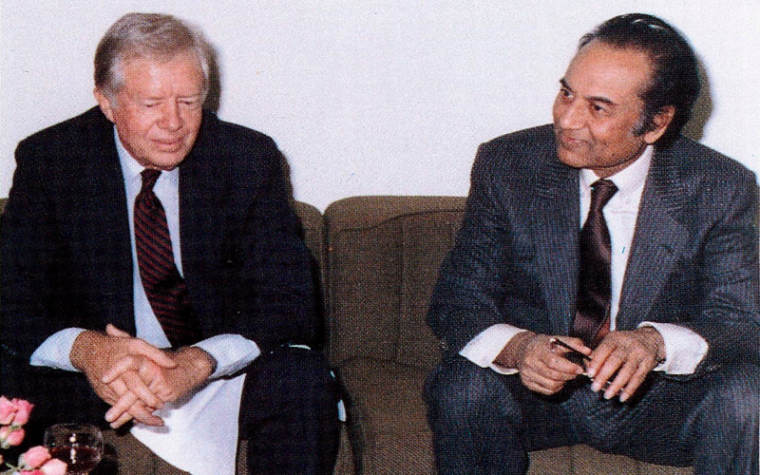
Providing Special Education in China
In1980s, three million people in China had lost one or both legs, others have visual, hearing or mental handicaps and all are in need of international assistance. Depressing statistics, but in each case, BCC brought new hope, as well as practical help, to local communities through sponsorship of Global 2000 health and rehabilitation projects.
In 1990, BCC donated machinery for a Beijing factory that was producing artificial lower limbs to enable disabled people to walk. All the machinery ordered; some from within China and some from West Germany enabled the factory to become fully functional and automated for production of the artificial limbs.
.png)
Global 2000 and BCC also took part in a special education programme in China. Its purpose was to train 300 teachers from all over the country to coach, in their turn, the teachers of pupils with special needs: the deaf, the blind and the mentally retarded.
Under this scheme, professors from the USA instructed Chinese university students in the latest techniques. Around 90 such teachers had been trained until March 1990, and the large majority of them returned to their provinces.
At a university in Shanghai, a first batch of 30 teachers were educated in early intervention techniques for the hearing impaired. After the first two years of the project was completed, its success was acknowledged by the China Disabled Persons Federation and the Chinese Ministry of Education.
Increasing agricultural production in Zambia
On agriculture, Global 2000 and BCC helped small scale, subsistence level farmers to increase their yields. By so doing, they were not only able to feed themselves adequately, but also earn extra money by selling their surplus crops.
In Zambia, Global 2000 and BCC began by assisting 200 farmers in 1986. In 1990, over 70,000 farmers would be using Global 2000 techniques to almost quadruple their output.
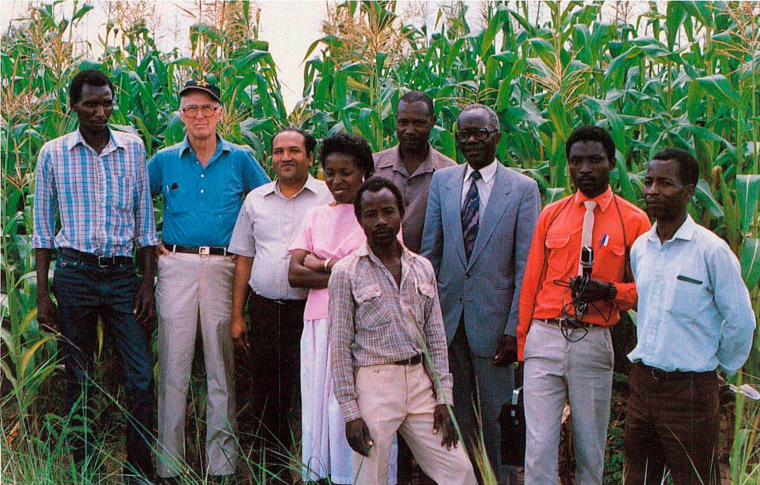
The Government of Zambia acknowledged the work of Global 2000 and BCC, and according to reports in the Zambian national press, made Kwachas 1.2 billion (approximately US$50.25 million) available to farmers as agricultural credit during the1990 cropping season.
Acknowledgement:
- In-house Magazines
- Searches online
